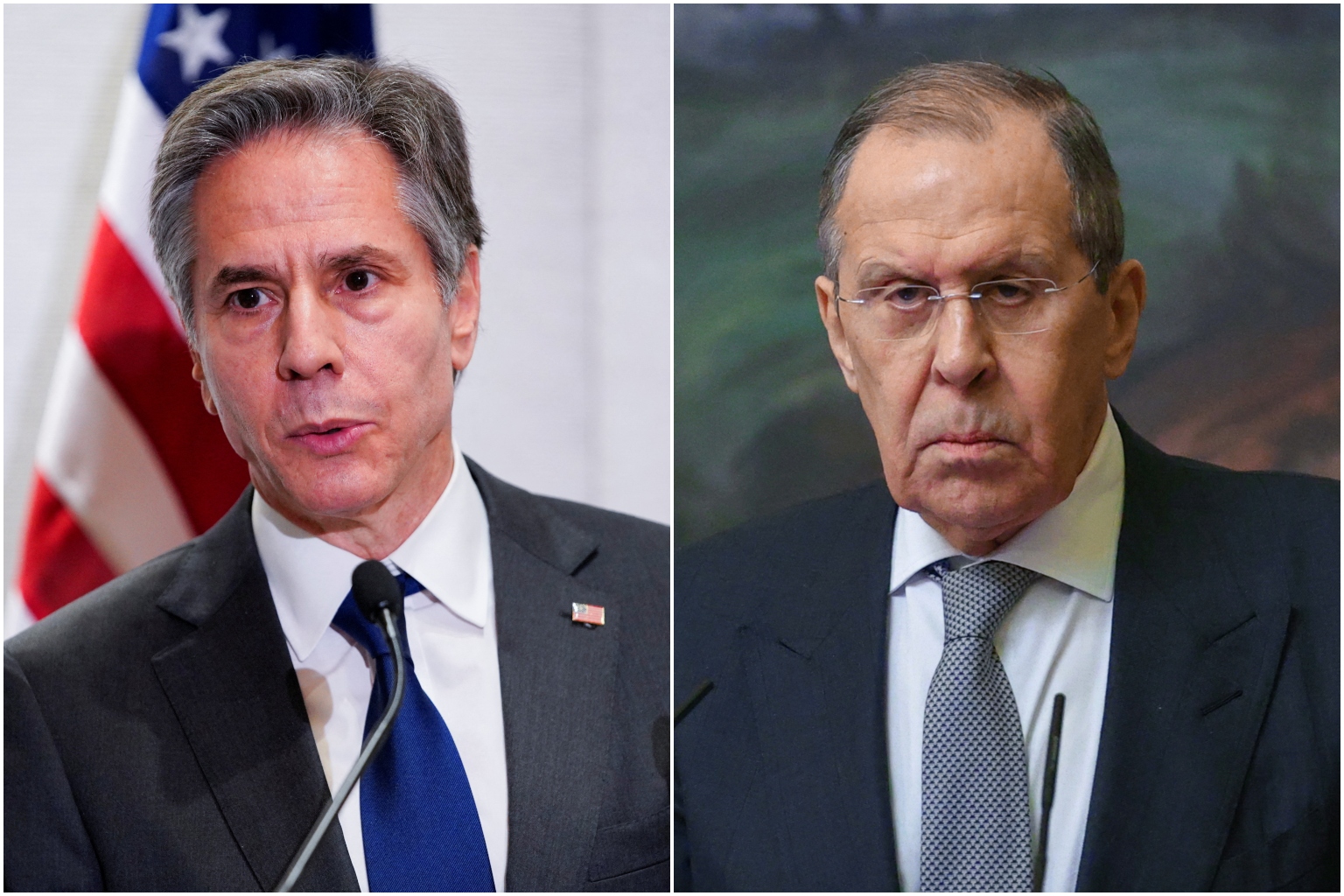US top diplomat Blinken cancels meeting with Russia's Lavrov over Ukraine
Sign up now: Get ST's newsletters delivered to your inbox

US Secretary of State Anthony Blinken (left) sent a letter to Russian counterpart Sergei Lavrov saying he would not longer meet him, on Feb 22, 2022.
PHOTOS: REUTERS
Follow topic:
WASHINGTON (AFP/REUTERS) - US Secretary of State Antony Blinken said on Tuesday (Feb 22) he has cancelled a meeting with Russian Foreign Minister Sergei Lavrov planned for Thursday after Moscow's recognition of two separatist regions in Ukraine as independent entities.
Blinken sent Lavrov a letter on Tuesday informing him he would no longer meet him, Blinken told reporters after a meeting with Ukrainian Foreign Minister Dmytro Kuleba in Washington.
"Now that we see the invasion is beginning and Russia has made clear its wholesale rejection of diplomacy, it does not make sense to go forward with that meeting at this time," Blinken said.
Blinken and Lavrov were to hold talks in Geneva on Thursday, after setting up the meeting last week in hopes of heading off Russia's threatened invasion of Ukraine.
Blinken said however that the invasion had already begun, and that Russian President Vladimir Putin had already declared his aim for “the total subjugation of Ukraine”.
Blinken, in a joint press conference with Kuleba at the State Department, said Washington would “always pursue” any possibility of preventing an all-out assault on Ukraine.
“If Moscow’s approach changes. We remain, I remain, very much prepared to engage,” he said.
“If Moscow’s approach changes. We remain, I remain, very much prepared to engage,” he said.
“But Moscow needs to demonstrate that it’s serious. The last 24 hours has demonstrated just the opposite,” he said, referring to Moscow’s statements that it would send troops into Ukraine breakaway regions Donetsk and Luhansk.
The United States and its allies would continue to escalate sanctions if Russia further escalates its aggression toward Ukraine, he said, referring to sanctions on Russian individuals and financial institutions announced by US President Joe Biden.
Kuleba welcomed the sanctions. “Condemnations are important. But it’s actions that really matter now these days,” he said.
The US strategy of imposing sanctions by waves, rather than all at once, “is something that can work if it continues in a very sustained way”, he added.
The US strategy of imposing sanctions by waves, rather than all at once, “is something that can work if it continues in a very sustained way”, he added.

